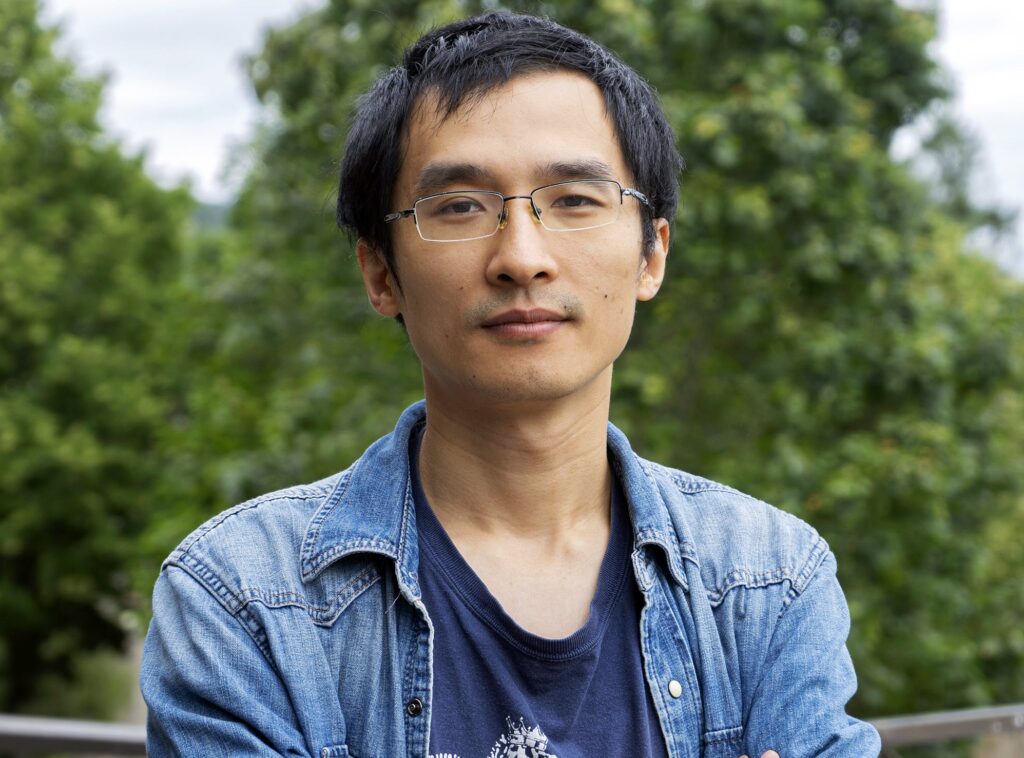Wenyang Qian, postdoctoral researcher at the Instituto Galego de Física de Altas Enerxías (IGFAE), has been recently awarded with the Marie Sklodowska-Curie Actions (MSCA) funding.
Wenyang comes from Nanjing, China, and he received his Ph.D. in 2020 under the supervision of Professor James Vary at Iowa State University in the United States. Later he joined the Instituto Galego de Fisica de Altas Enerxías (IGFAE) as a postdoc researcher, in the Yocto LHC project, funded by Advanced Grant call of the European Research Council (ERC), and led by Professor Carlos Salgado.
Wenyang’s doctoral research focuses on understanding hadronic structures using non-perturbative light-front Hamiltonian formalism. With the rapid development of quantum computing, he has been working on extending the Hamiltonian formalism to solve bound-state and time-dependent problems using quantum devices.
Last year, Wenyang Qian and his colleagues developed a quantum simulation framework to study jet quenching phenomena in relativistic heavy-ion collisions, which provides a baseline for future in-medium jet physics studies using quantum computers.
With this MSCA-PF funding, he will be able to deepen his research in the quantum simulation of jet evolution. In this fellowship, Wenyang aims to develop a comprehensive quantum computing model that allows multi-particle jets to interact with a realistic background field.
About the research results, Wenyang expects to produce open-source quantum computing software that can be used by the high-energy physics community. And he also hopes these projects can shed new light in shaping our understanding of jets in relativistic heavy-ion collisions combining the expertise on jet physics at IGFAE and the prosperity of quantum computing technology.
